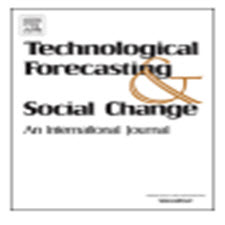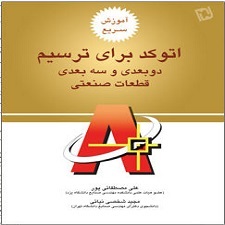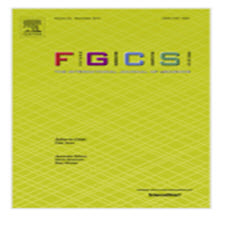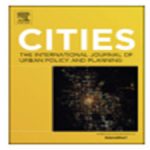توضیحات
ABSTRACT
Smart cities are one of the dominant manifestations of digitization with a multimillion dollar potential, where cities and companies alike are looking for ways to create and capture value. Technology-driven companies are key to making smart cities a reality, but their current product-centric business models do not meet the changing needs anymore. Based on an in-depth study at Philips Lighting of four smart city cases across a period of five years, our article illustrates four distinct business models that enable incumbent organizations to enter this smart city market. We develop and contrast the four types of business models on individual and joint value creation and value capture dimensions and show how each business model can be of value to an incumbent, depending on the project and ecosystem. We illustrate these business models with insights from Philips Lighting’s transition from public lighting to smart cities and provide specific implementation suggestions for incumbent companies.
INTRODUCTION
Rome was not built in a day, and neither are smart cities. By 2050, nearly 70% of the world’s population will live in urban areas (UNESA, 2015), creating both challenges and opportunities for municipalities and industries, leading to a widespread debate about the future of cities. Digital technology functions as a catalyst for urban transformation promising more efficient, livable, “smart” cities that improve the quality of life for citizens and visitors by leveraging smart services, systems, and solutions (The Economist, 2016). Frost & Sullivan estimate that the smart city market will be worth $1.6 trillion by 2020 with a wealth of locations claiming their status as smart cities, collaborating closely with industry experts and knowledge institutions (Frost & Sullivan, 2014; Snow et al., 2016). The rules of the game are changing, many new technology players from different disciplines are active in the smart city market. These companies range from new entrants to established players, which include such well-known names as Cisco, IBM, Huawei, Philips and Accenture. Although municipalities and businesses both seek to be at the forefront of these exciting developments, success in this cutting-edge domain is no small feat.
چکیده
شهرهای هوشمند یکی از تظاهرات غالب دیجیتالی سازی با پتانسیل چند میلیونی دلاری هستند که در آن شهرهای و شرکت ها به طور یکسان به دنبال راه هایی برای ایجاد و ارزش گذاری هستند. شرکت های مبتنی بر فناوری، کلیدی برای ساختن شهر های هوشمند هستند که واقعیت دارند، اما مدل های کسب و کار فعلی محصولات آنها دیگر نیازی به تغییرات را ندارند. بر اساس یک مطالعه عمیق در فیلیپس روشنایی چهار پرونده شهر هوشمند در طول پنج سال، مقاله ما نشان می دهد چهار مدل کسب و کار مجزا که سازمان های معتبر را قادر می سازد وارد این بازار شهر هوشمند. ما چهار نوع مدل کسب و کار را در ایجاد ارزش های فردی و ارزش مشترک و ابعاد ضبط ارزش تشریح می کنیم و نشان می دهیم که چگونه هر یک از مدل های کسب و کار می تواند بر اساس یک پروژه، و اکوسیستم ارزش داشته باشد. ما این مدل های کسب و کار را با بینش از انتقال Philips Lighting از روشنایی عمومی به شهر های هوشمند نشان می دهیم و پیشنهادات ویژه ای را برای شرکت های معتبر ارائه می دهیم.
مقدمه
رم در یک روز ساخته نشد و شهر های هوشمند هم نیستند. تا سال 2050، تقریبا 70 درصد جمعیت جهان در مناطق شهری زندگی خواهند کرد (یونسا، 2015)، چالش ها و فرصت ها را برای شهرداری ها و صنایع ایجاد می کنند و منجر به بحث گسترده ای درباره آینده شهرها می شود. فن آوری دیجیتال به عنوان یک کاتالیزور برای تحول شهری، امیدوار است که شهرهای کارآمد، جسورانه و “هوشمند” که کیفیت خدمات زندگی شهروندان و بازدیدکنندگان را با استفاده از خدمات هوشمند، سیستم ها و راه حل ها بهبود می بخشد (The Economist، 2016). بر اساس تخمین فروست و سولیوان، بازار شهر هوشمند تا سال 2020 به ارزش 1.6 تریلیون دلار خواهد رسید و ثروت های زیادی را به عنوان شهر های هوشمند اعلام می کند که با کارشناسان صنعت و نهادهای دانش همکاری می کند (Frost & Sullivan، 2014؛ Snow et al.، 2016) . قوانین بازی در حال تغییر هستند، بسیاری از بازیکنان فن آوری جدید از رشته های مختلف در بازار شهر هوشمند فعال هستند. این شرکت ها از شرکت کنندگان تازه وارد به بازیکنان متشکل از افراد شناخته شده مانند Cisco، IBM، Huawei، Philips و Accenture می باشند. هرچند شهرداری ها و کسب و کار هر دو به دنبال این هستند که در پیشروی این تحولات هیجان انگیز قرار گیرند، موفقیت در این دامنه پیشرفته، هیچ شاهکار نیست.
Year: 2018
Publisher : ELSEVIER
By : Kati Brock, Elke den Ouden, Kees van der Klauw, Ksenia Podoynitsyna, Fred Langerak
File Information: English Language/ 16 Page / size: 482 KB
سال : 1396
ناشر : ELSEVIER
کاری از : کتی برک، الکه دودن، کیسه ون کروک، کیانا پوداینیسینا، فرد لانگراک
اطلاعات فایل : زبان انگلیسی / 16 صفحه / حجم : KB 482





![Implementation of Quality Criteria in Tendering[taliem.ir]](https://taliem.ir/wp-content/uploads/Implementation-of-Quality-Criteria-in-Tenderingtaliem.ir_.jpg)




نقد و بررسیها
هنوز بررسیای ثبت نشده است.